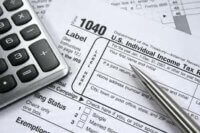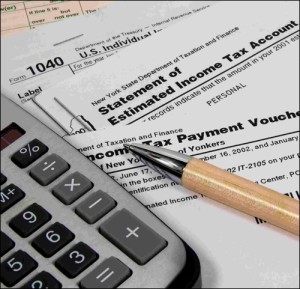You may realize that your income is below the threshold for filing a 2019 income tax return and to save the irritation and fees for filing, you don’t do it. That’s completely acceptable and possibly reasonable. I say possibly, because there are many good reasons to file. And why? Because you may be entitled to money back from the IRS.
The IRS sums it up with not just one, but five reasons you may want to file. In most cases, income, filing status and age determine if a taxpayer must file a tax return. Other rules may apply if the taxpayer is self-employed — in this case, you must file if you had at least $400 in self-employment income — or can be claimed as a dependent of someone else. There are other reasons when a taxpayer must file. The IRS has an Interactive Tax Assistant feature to help to decide.
Refund Potential – Look at tax withheld or paid
Here are a few questions for taxpayers to ask themselves:
- Did your employer withhold federal income tax from your pay?
- Did you make estimated tax payments?
- Did you overpay last year and have it applied to this year’s tax?
If the answer is “yes” to any of these questions, you could be due a refund. You must file a tax return to get their money.
Look into whether you can claim the earned income tax credit
A working taxpayer who earned less than $55,592 last year could receive the EITC as a tax refund. You must qualify and may do so with or without a qualifying child. You can check eligibility by using the 2019 EITC Assistant on IRS.gov. Taxpayers need to file a tax return to claim the EITC.
Child tax credit or credit for other dependents
Taxpayers can claim the child tax credit if they have a qualifying child under the age of 17 and meet other qualifications. Other taxpayers may be eligible for the credit for other dependents. This includes people who have:
- Dependent children who are age 17 or older at the end of 2019
- Parents or other qualifying individuals they support
The Child-Related Tax Benefits tool can help people determine if they qualify for these two credits.
Education credits
There are two higher education credits that reduce the amount of tax someone owes on their tax return. One is the American opportunity tax credit and the other is the lifetime learning credit. You, your spouse or your dependent must have been a student enrolled at least half time for one academic period to qualify. You may qualify for one of these credits even if you don’t owe any taxes. Form 8863, Education Credits is used to claim the credit when filing the tax return.
And note that if your total income for the year is $69,000 or less you qualify to file for free. Go to www.irs.gov and press the button for Free File to connect to a service that charges no fees for filing your 2019 income tax return.
More information:
Schedule 8812 (Form 1040), Child Tax Credit
Publication 972, Child Tax Credit
Free Tax Return Preparation for Qualifying Taxpayers
Choosing a tax professional
Free File
Let Us Help You




Be First to Comment